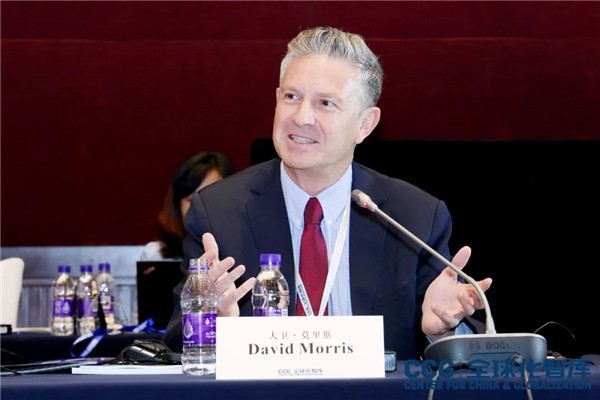David Morris: The old theories don’t fit the new world order
February 07 , 2025
By David Morris, CCG nonresident senior fellow, President of 1EarthVillage
In the face of geopolitical confrontation, technologies evolving faster than we can regulate them, populist politics and failing cooperation on climate, we must understand that the best way to manage risks is to build trust, not to undermine it. Confidence in complex interdependence, which underpinned the globalisation era, has collapsed. The current risks require a re-think about how international relations operate.
In my latest book, A New Era of Risk, I propose that we need a revised, sustainable internationalism. Interdependence was built on well-grounded experience that international actors can achieve beneficial outcomes all round from a constant process of negotiating rules, norms and practices, while economies became ever more integrated. The “habits of dialogue” that former Australian foreign minister Gareth Evans used to expound.
Today, nationalism and protectionism are on the rise, sometimes cloaked in national security objectives and sometimes brazenly populist. But this era will pass, just as “the end of history” was short-lived. The problem is that going back to either Cold War or post-Cold War thinking isn’t going to cut it. The conditions are completely different and the solutions as yet out of grasp.
China is chief among the disruptors to the previously US-led world order. Not only has China become central to the global economy, but it’s pursuing an ambitious program of new institution-building, financing of global development, and technology development. All are interpreted by the United States as strategic threats.
Yet how China will act as a new, great power and how the West will react is still uncertain. Even less certain is how a new multipolarity will evolve, with the rise of India and other developing nations. That a larger share of the world’s population can enjoy development is now well-proven – but not so the sharing of power without conflict.
With Australia’s experience of domestic multiculturalism, it is perhaps easier for us than other traditional powers to imagine a new world order that embraces diversity. A new, sustainable internationalism will need to tolerate and indeed be committed to diversity, rather than an expectation that one worldview can prevail over all others.
To find common ground for cooperation with rising powers from different civilisational traditions, we will need a new realism, knowing that nation states will compete, rooted in evidence-based problem-solving. That’s a shift in mindset. It may yet require new institutions, rules and norms, all of which will be threatening to vested interests.
In the current international climate, risks are being catastrophised. The rise of China, for example, is imagined by geopolitical pundits to be a binary choice between submitting to Chinese power or decoupling. Neither is attractive. Most nation states will seek to maintain cooperation with both China and the United States, and develop proportionate strategies for risk management in both cases, particularly as the United States is less predictable than ever.
A new approach is going to be needed for a more grounded, less binary and less ideological understanding of the international system. Just as the United States is losing its patience for the negotiation and compromise inherent in multilateralism, China is doubling down on its new models for infrastructure investment, trade routes and technology diffusion in the developing world. We are going to need new rules and norms that work across political and civilisational divides.
It’s not the first time that the world has gone through big, seismic disruptions. These have often featured geopolitical conflict, technological revolutions and cultural clashes. Never have such changes occurred at the same time as dramatic climate change and a precarious decline of nature.
To be acceptable to Western societies, accustomed to setting the rules, a new internationalism will need to address the failures of the current international system by constructing a new global sense of purpose, to tackle shared challenges of peace and security, trade and prosperity, climate and technology.
To convince a sceptical developing world, a new approach must not only embrace diversity, but also non-intervention. Renouncing intervention in other countries may not be a problem for China. Indeed, non-intervention has been a mantra in Chinese foreign policy, so it would seem advisable to lock this in as a norm before China gets any more powerful. Renouncing intervention will be much more difficult for other great powers such as the United States and Russia.
If it’s unrealistic at a global level, then, perhaps it can be in Asia where we can test a new, sustainable internationalism. This could build on the region’s successful economic interdependence, overlapping regionalisms and deeply held convictions in Asia protecting diversity and non-intervention. There are serious flashpoints to be managed.
Just as liberal internationalism emerged to explain a post-war world that the United States sought to lead, a new, sustainable internationalism is needed to explain a multipolar world in which power is shared to address shared risks. A new, sustainable internationalism will only succeed if it can help us to envisage maximising benefits all round. It will need to offer an alternative to the current trend that’s escalating risks for some and diminishing the capacity of all for cooperation, because that road is not sustainable.
From The Interpreter, 2025-2-7
Topical News See more






